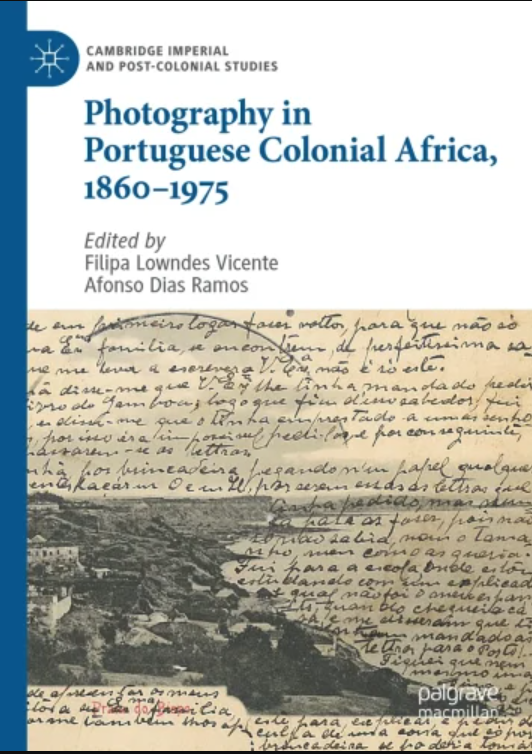 “An Africanist Photo-ethno-graphy in the Portuguese New State (1928–1974)”, chapter by Inês Ponte in Photography in Portuguese Colonial Africa, 1860–1975, edited by Filipa Lowndes Vicente (ICS-ULisboa) and Afonso Dias Ramos (NOVA FCSH), published by Palgrave Macmillan, Cambridge Imperial and Post-Colonial Studies Serie.
“An Africanist Photo-ethno-graphy in the Portuguese New State (1928–1974)”, chapter by Inês Ponte in Photography in Portuguese Colonial Africa, 1860–1975, edited by Filipa Lowndes Vicente (ICS-ULisboa) and Afonso Dias Ramos (NOVA FCSH), published by Palgrave Macmillan, Cambridge Imperial and Post-Colonial Studies Serie.“This chapter examines the trajectory of Charles Estermann (1895–1976), a missionary-turned-ethnographer-turned-photographer. Estermann’s scientific career flourished amidst the prolonged Portuguese New State dictatorship (1928–1974) while he resided in Angola, a colony at the time. I recuperate his long-term extensive use of photography as a scientific record and a tool for science communication, effectively using this medium all while operating from a peripheral region of a Portuguese colony. Through the lens of his published photography, I delve into how Estermann, as a self-taught scientist, prolifically documented the diverse ethnographic aspects of the multiethnic southern region, adeptly adapting to the ever-evolving technological advancements of his time, as well as navigating the evolving policy shifts of a long-lasting colonial regime.”
access the chapter here
Photography in Portuguese Colonial Africa, 1860–1975, edited by Filipa Lowndes Vicente (ICS-ULisboa) and Afonso Dias Ramos (NOVA FCSH), was recently published by Palgrave Macmillan, Cambridge Imperial and Post-Colonial Studies Serie.
This edited collection presents the first critical and historical overview of photography in Portuguese colonial Africa to an English-speaking audience. Photography in Portuguese Colonial Africa, 1860–1975 brings together sixteen scholars from interdisciplinary fields as varied as history, anthropology, art history, visual culture and museum studies, to consider some of the key aspects in the visual representation of the longest-lasting European colonial empire in the African continent. The chapters span over two centuries and cover five formerly colonial territories – Angola, Cabo Verde, Guinea-Bissau, Mozambique, and São Tomé and Príncipe – deploying a range of methodologies to explore the multiple meanings and the contested uses of the photographic image across the realms of politics, science, culture and war. This book responds to a marked surge of international interest in the relationship between photography and colonialism, which has hitherto largely overlooked the Portuguese imperial context, by delivering the most recent scholarly findings to a broad readership.

